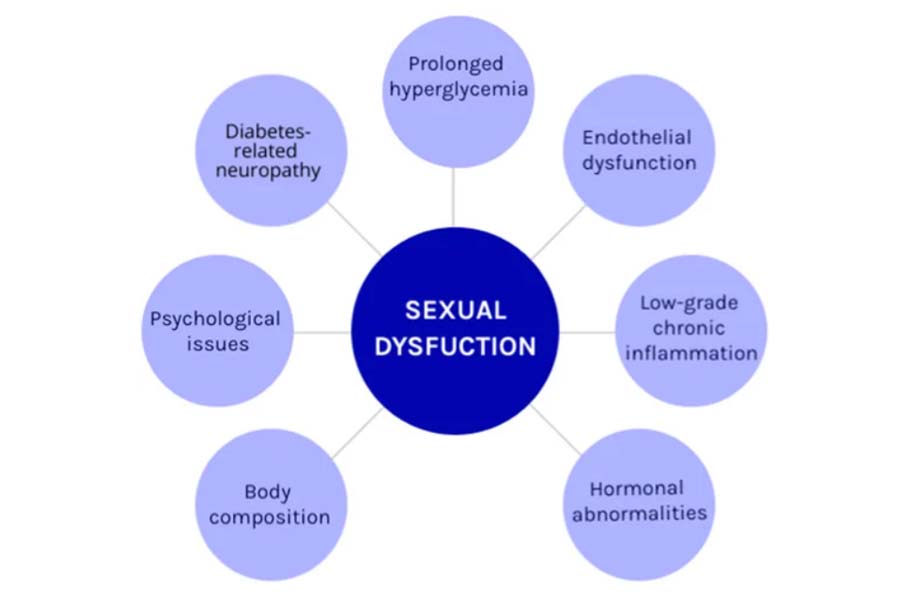
Sexual dysfunction refers to a difficulty or problem that prevents an individual or couple from experiencing satisfaction from sexual activity. It can occur at any stage of the sexual response cycle, which includes desire, arousal, orgasm, and resolution. Sexual dysfunction can affect both men and women, and it can have various causes, including physical, psychological, or interpersonal factors.
Treatment for sexual dysfunction depends on the underlying cause and may involve a combination of medical, psychological, and behavioral interventions. Individuals experiencing sexual dysfunction need to seek evaluation and support from Dr. Naincy Purwar to address their concerns and explore appropriate treatment options. Open communication and an understanding environment can also play an important role in managing sexual dysfunction.
Dr. Naincy Purwar can conduct a comprehensive evaluation, identify underlying factors contributing to sexual dysfunction, and recommend personalized treatment options to address your needs and goals. Endocrinologist Dr. Naincy Purwar can be a valuable healthcare provider to consult for sexual dysfunction, especially when it is suspected to be related to hormonal imbalances. She specializes in diagnosing and treating hormonal disorders, which can play a significant role in sexual function for both men and women.
If you're experiencing sexual dysfunction and suspect it may be related to hormonal imbalances or underlying medical conditions, scheduling an appointment with endocrinologist Dr. Naincy Purwar can be a proactive step toward diagnosis and treatment. She can perform a thorough evaluation, order appropriate tests, and recommend personalized treatment options to address your concerns and improve sexual health and well-being.
Call now : Dr. NAINCY PURWAR
+91-7297080208

